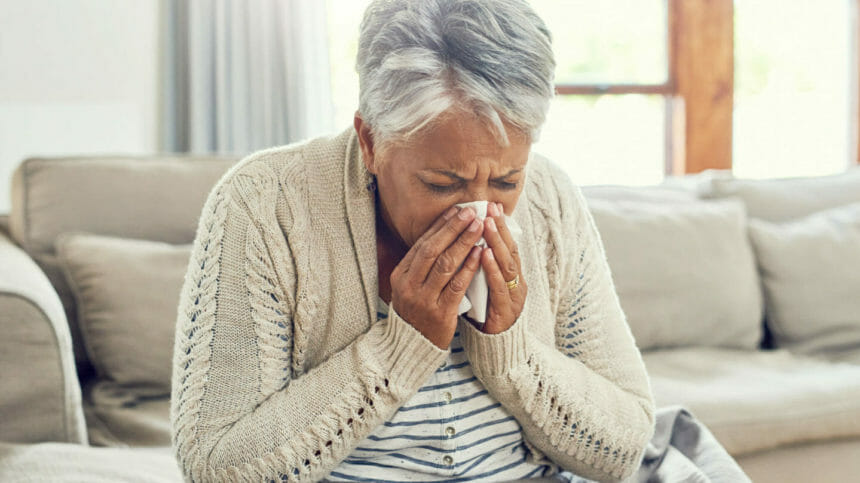
Flu prevalence still is going up in some countries in the Northern Hemisphere, but overall, it is declining, according to a new report. The news comes as another recent study examined the advice of eating when one has a cold but not when one has a fever — and found that this advice isn’t exactly helpful.
The virus declined in terms of spreading at the end of last year and into the first week of January, the World Health Organization recently reported. Flu activity has stayed elevated in North America, the WHO said.
Among samples that were positive for flu, 84.2% were influenza A and 73% of those were H3N2.
The news comes as a recent report from a professor at the Baylor College of Medicine in Houston said that people need to eat when they have colds and fevers. (The traditional sickness advice is to “feed a cold, starve a fever.”)
Pedro Piedra, MD, a professor of molecular virology, microbiology and pediatrics at the school, said that adequate nutrition is vital regardless of the type of sickness a person has. Piedra noted that fever is just one way the body fights infections; it demands that the body gets enough energy from food and beverages, even if an individual doesn’t have much of an appetite.
Cold weather typically increases people’s risk for catching colds, the flu and COVID-19, because people stay inside. The cold temperatures also let viruses stay alive on surfaces longer.
“There is also a saying that if your hair is wet and you are in a cold environment, you will get sick. That is partly true,” Piedra said in a statement. “You won’t contract a virus, but you may weaken your immune system, which might invite sickness.”
Eating well is important, but so is drinking. Warm tea is a good choice because it promotes hydration and may help a sore throat as well, Piedra said.
People who get sick should ask their doctors about medicines to shorten sickness, too, Piedra said.




